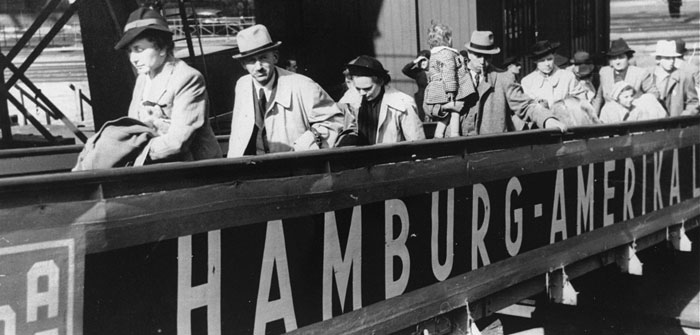
Word of the Day: Enervate
Paul Schleifer
Enervate is one of those words that means the opposite of what you might think it means. It sounds something like energize, right? So you might think it is in some way a synonym for energize, and then you would be exactly wrong. Enervate is a verb meaning “to deprive of force or strength; destroy the vigor of; weaken.” It is a transitive verb, meaning that it always takes a direct object (unless, of course, it is used in the passive voice).
According to www.etymonline.com, the verb comes “from Latin enervatus, past participle of enervare ‘to weaken.’” Interestingly, the first OED citation, from 1565, concerns arguments rather than physical energy: “T. Dorman Disproufe M. Nowelles Reproufe xxi. f. 152v To eneruate and weaken..the auctoritye of generall councelles.” The first citation referring to physical strength comes from 1572: “tr. S. Münster Briefe Coll. & Compend. Extract Cosmogr. f. 13v Feare & vnquietnes of mynde in youth doth much eneruate and weaken the strengthe of the body.” Etymonline says that enervation dates from the early 15th century, but it does not give a source or an example for that assertion, and the earliest citation for enervation in the OED is in the 1570s, so enervate is probably not a backformation.
On this date in 1939, the MS St. Louis ended its attempt to find refuge for 937 Jewish refugees from Nazi Germany and began the 11-day voyage across the Atlantic to Europe.
On May 13, 1939, Gustav Schröder sailed with 231 members of the crew and the 937 mostly Jewish refugees from Hamburg for Havanna. The passengers had purchased visas and the other appropriate paperwork for debarking in Cuba, but even before the trip began, the president of Cuba, “Federico Laredo Brú signed a decree that invalidated the passengers’ landing certificates” (https://www.britannica.com/topic/MS-St-Louis-German-ship). This move found favor among many Cubans, some of whom believed Nazi propaganda that the refugees were communists and others of whom were afraid the refugees would compete for jobs.
In short, only 28 passengers were allowed to debark at Havanna. The refugees then tried to win refugee status in the U.S., but the FDR administration had strict limits on immigration, and the refugees were told that they could get on the waiting list, a list that was several years long. Then they tried to gain refugee status in Canada, but the Canadians were, for once, not nice. Finally, the ship turned around and headed for Europe.
The remaining 900+ passengers were taken in by several European nations: the U.K., the Netherlands, Belgium, and France. Researchers have determined that 255 of those passengers died during the course of the war in Europe, most of them in Nazi concentration camps.
The story of the St. Louis is one of the sadder stories about the United States during the 1930s and 40s, along with the internment of Japanese- and German-Americans during WWII, and the racial discrimination practiced by the Armed Forces. One would hope that such discrimination and such behavior would lessen, and truthfully, it has. But there are definitely times when the racism and anti-Semitism that has plagued our world for so long rears their ugly heads.
Things in our world are better than they have ever been before. The numbers about violent deaths, about poverty, and about freedom bear that statement out. But when we hear about bigotry and unkindness, sometimes it can just be enervating.
The image is of “the MS St. Louis’ attempt to disembark in the United States in 1939, an attempt that was denied. Graphic courtesy of the U.S. Holocaust Museum” (http://www.dia.mil/News/Photo-Gallery/igphoto/2000793913/).